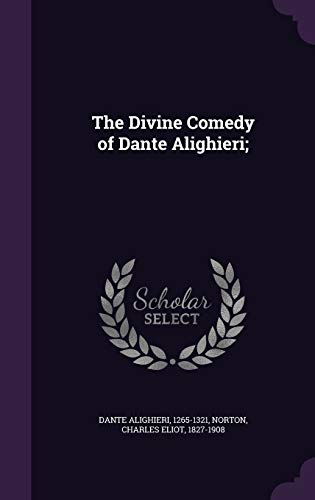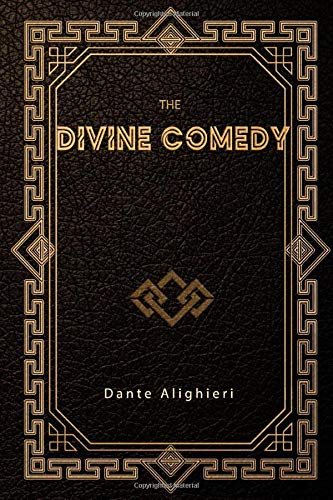-
The Divine Comedy - Inferno
Dante Alighieri, Denis G. Daly, Spoken Realms
Audiobook (Spoken Realms, Dec. 29, 2013)Among the monuments of world literature, few works have been as influential as the Divine Comedy. Dante's compendious allegory of a journey through the world of the afterlife is significant on many levels. It established Italian as a literary language, and consolidated the position of Florentine Italian as the lingua franca of the Italian peninsula. As an engaging portrait of the social and intellectual life in medieval Florence it is unrivalled. Above all, it is a narrative poem of great power, and the richness of Dante's imagery and his vivid and concise descriptions of characters and events, gives the work a compelling immediacy which has not diminished over the centuries. There are many English translations of the Divine Comedy, which vary in both quality of versification and fidelity to the original. The translation by Ichabod Charles Wright is notable for its accuracy and a self-effacing elegance of verbiage. With the translation Wright has also included some explanatory essays, which are very helpful to readers and listeners who are unfamiliar with Dante and his world. Each canto of the poem is also headed with a concise synopsis. The first volume, The Inferno, describes Dante's journey through the underworld, where unrepentent sinners are subjected to eternal punishment, the form of which is dictated by their besetting sin. Unsurprisingly, Dante's haunting vision of Hell has always had greater hold on the public imagination than have his bracing journey through Purgatory or his sojourn among the eclectic delights of Paradise.
-
The Divine Comedy
Dante Alighieri, Gustave Dore
Leather Bound (Canterbury Classics, Nov. 12, 2013)“O human race, born to fly upward, wherefore at a little wind dost thou so fall?”Inferno, Purgatorio, and Paradiso--the three fates of the deceased become the three pillars of an epic poem. The Divine Comedy, written by Italian poet Dante Alighieri in the fourteenth century, is considered the foremost work in Italian literature. The journey begins with Dante’s descent into the depths of Hell where he witnesses those eternally separated from God. Then he climbs the mountain of Purgatory where Christian souls undergo final purification, before finally touring the celestial circles of Heaven where he is filled with the image of God. An allegorical work, the comedy is representative of the soul’s journey towards God. Influential for seven centuries, this classic is a must have for lovers of great literature, and the luxurious leather-bound edition from Canterbury Classics will make a stunning addition to any library.
-
The Divine Comedy
Dante Alighieri
Paperback (Independently published, June 30, 2019)Written in the 14th century by Italian writer Dante Alighieri, The Divine Comedy chronicles Dante's fictional journey through Hell, Purgatory, and Heaven. Profoundly allegorical, it has challenged and inspired generations of readers.
-
The Divine Comedy
Dante Alighieri
Paperback (Independently published, March 17, 2020)Dante Alighieri – Die göttliche KomödieinklusiveDantes InfernoPurgatorioParadisoIn seinem Klassiker der Weltliteratur lässt Dante Alighieri zuerst den römischen Dichter Vergil durch Hölle und Fegefeuer führen und zuletzt seine Jugendfreundin Beatrice durch das Paradies.Mit dieser Reise möchte der Autor auf tieferer Ebene den symbolischen Weg zu Gott beschreiben, wobei dem Leser dabei die Seelen unzähliger Verstorbener begegnen, unter anderem lässt der Autor Horaz, Barbarossa und Ovid sprechen.Dante Alighieri verhalf mit seinem Epos Die göttliche Komödie der italienischen Sprache zum Durchbruch als Literatursprache.Dante Alighieri - The Divine Comedy: Inferno; Purgatorio; ParadisoIn Dante Alighieris world famous classic The Divine Comedy the roman poet Vergil guides through Inferno and Purgatorio and ultimately it’s his childhood friend Beatrice who guides through Paradise.The journey describes the symbolic path to God on a deeper level, while the reader is meeting the soules of countless decedents‘ like Horaz, Barbarossa and Ovid.Dante Alighieri and his epic drama The Divine Comedy helped the italian to it's breakthrough as literary language.
-
The Divine Comedy: Inferno, Purgatorio, Paradiso
Dante Alighieri
Hardcover (Prince Classics, May 24, 2019)The Divine Comedy is an Italian long narrative poem by Dante Alighieri, begun c. 1308 and completed in 1320, a year before his death in 1321. It is widely considered to be the preeminent work in Italian literature and one of the greatest works of world literature. The poem's imaginative vision of the afterlife is representative of the medieval world-view as it had developed in the Western Church by the 14th century. It helped establish the Tuscan language, in which it is written (also in most present-day Italian-market editions), as the standardized Italian language. It is divided into three parts: Inferno, Purgatorio, and Paradiso.The narrative describes Dante's travels through Hell, Purgatory, and Paradise or Heaven, while allegorically the poem represents the soul's journey towards God. Dante draws on medieval Christian theology and philosophy, especially Thomistic philosophy derived from the Summa Theologica of Thomas Aquinas. Consequently, the Divine Comedy has been called "the Summa in verse". In Dante's work, Virgil is presented as human reason and Beatrice is presented as divine knowledge.
-
Divine Comedy
Dante Alighieri
Hardcover (Arcturus Publishing Limited, Sept. 1, 2013)The Divine Comedy remains one of the pillars upon which the European literary tradition has been built. Dante's allegorical analysis of the mystery of divine revelation to the unsuspecting human soul is beautifully conveyed as a subtle journey of wonder and self-discovery, made personal by characters drawn from his own lineage, contemporary Florentine life, mythology, and the Bible. One of the most accessible classics, this clothbound edition features delicately engraved illustrations by the nineteenth-century artist Gustave Dore and includes its own slipcase. A truly beautiful and highly collectible edition.
-
The Divine Comedy of Dante Alighieri;
1265-1321 Dante Alighieri, Charles Eliot Norton
Hardcover (Palala Press, April 22, 2016)This work has been selected by scholars as being culturally important, and is part of the knowledge base of civilization as we know it. This work was reproduced from the original artifact, and remains as true to the original work as possible. Therefore, you will see the original copyright references, library stamps (as most of these works have been housed in our most important libraries around the world), and other notations in the work.This work is in the public domain in the United States of America, and possibly other nations. Within the United States, you may freely copy and distribute this work, as no entity (individual or corporate) has a copyright on the body of the work.As a reproduction of a historical artifact, this work may contain missing or blurred pages, poor pictures, errant marks, etc. Scholars believe, and we concur, that this work is important enough to be preserved, reproduced, and made generally available to the public. We appreciate your support of the preservation process, and thank you for being an important part of keeping this knowledge alive and relevant.
-
The Divine Comedy: Dante Inferno Purgatorio Paradiso
Dante Alighieri
Paperback (Vintage, May 14, 2013)The complete Divine Comedy (Inferno, Purgatorio, Paradiso) in one volume from Vintage Classics. The greatest poem of the Middle Ages, in the standard Carlyle-Okey-Wickstead translation, with full notes.Dante’s Divine Comedy relates the allegorical tale of the poet’s journey through the three realms of the dead. Accompanied through the Inferno and Purgatory by Virgil—author of the Roman epic the Aeniad—Dante encounters mythical, historical, and contemporaneous figures in their respective afterlives. Relying on classical (pagan) mythology and Christian imagery and theology, Dante imagines diverse vivid and inventive punishments for the various sinners he encounters, which have become part of the Western imagination. Upon their approach to Paradise, which as a pagan, no matter how worthy, the Latin poet cannot enter, Virgil relinquishes his role as guide to Beatrice. Dante's chaste beloved then accompanies him along the ascent, as they encounter the blessed and the holy, and Dante arrives at a vision of the heavenly paradise.
-
The Divine Comedy
Dante Alighieri, Henry Francis Cary
Paperback (Independently published, Dec. 9, 2019)The Divine Comedy is a long Italian narrative poem by Dante Alighieri, begun c. 1308 and completed in 1320, a year before his death in 1321. It is widely considered to be the pre-eminent work in Italian literature and one of the greatest works of world literature.
-
The Divine Comedy
Dante Alighieri
Hardcover (Wentworth Press, Feb. 20, 2019)This work has been selected by scholars as being culturally important, and is part of the knowledge base of civilization as we know it. This work was reproduced from the original artifact, and remains as true to the original work as possible. Therefore, you will see the original copyright references, library stamps (as most of these works have been housed in our most important libraries around the world), and other notations in the work.This work is in the public domain in the United States of America, and possibly other nations. Within the United States, you may freely copy and distribute this work, as no entity (individual or corporate) has a copyright on the body of the work.As a reproduction of a historical artifact, this work may contain missing or blurred pages, poor pictures, errant marks, etc. Scholars believe, and we concur, that this work is important enough to be preserved, reproduced, and made generally available to the public. We appreciate your support of the preservation process, and thank you for being an important part of keeping this knowledge alive and relevant.
-
The Divine Comedy
Dante Alighieri
Hardcover (Wentworth Press, Feb. 25, 2019)This work has been selected by scholars as being culturally important, and is part of the knowledge base of civilization as we know it. This work was reproduced from the original artifact, and remains as true to the original work as possible. Therefore, you will see the original copyright references, library stamps (as most of these works have been housed in our most important libraries around the world), and other notations in the work.This work is in the public domain in the United States of America, and possibly other nations. Within the United States, you may freely copy and distribute this work, as no entity (individual or corporate) has a copyright on the body of the work.As a reproduction of a historical artifact, this work may contain missing or blurred pages, poor pictures, errant marks, etc. Scholars believe, and we concur, that this work is important enough to be preserved, reproduced, and made generally available to the public. We appreciate your support of the preservation process, and thank you for being an important part of keeping this knowledge alive and relevant.
-
The Divine Comedy
Dante Alighieri
eBook (, Jan. 6, 2014)This edition includes 10 unique illustrations and an active table of contents.Perhaps the most stirring masterpiece from the Middle Ages, Dante Alighieri’s The Divine Comedy was an astonishing achievement that places the author among the ranks of the great epic poets of the classical world. It is fitting, then, that Virgil serves as the autobiographical narrator’s mentor and guide through Hell and Purgatory, while Alighieri’s great, doomed love Beatrice leads him through Heaven (Paradiso). Written up until the author’s death in 1321, Alighieri broke from tradition by composing his epic in his native tongue – a Tuscan dialect – rather than the standard Latin, in which such works were normally written.